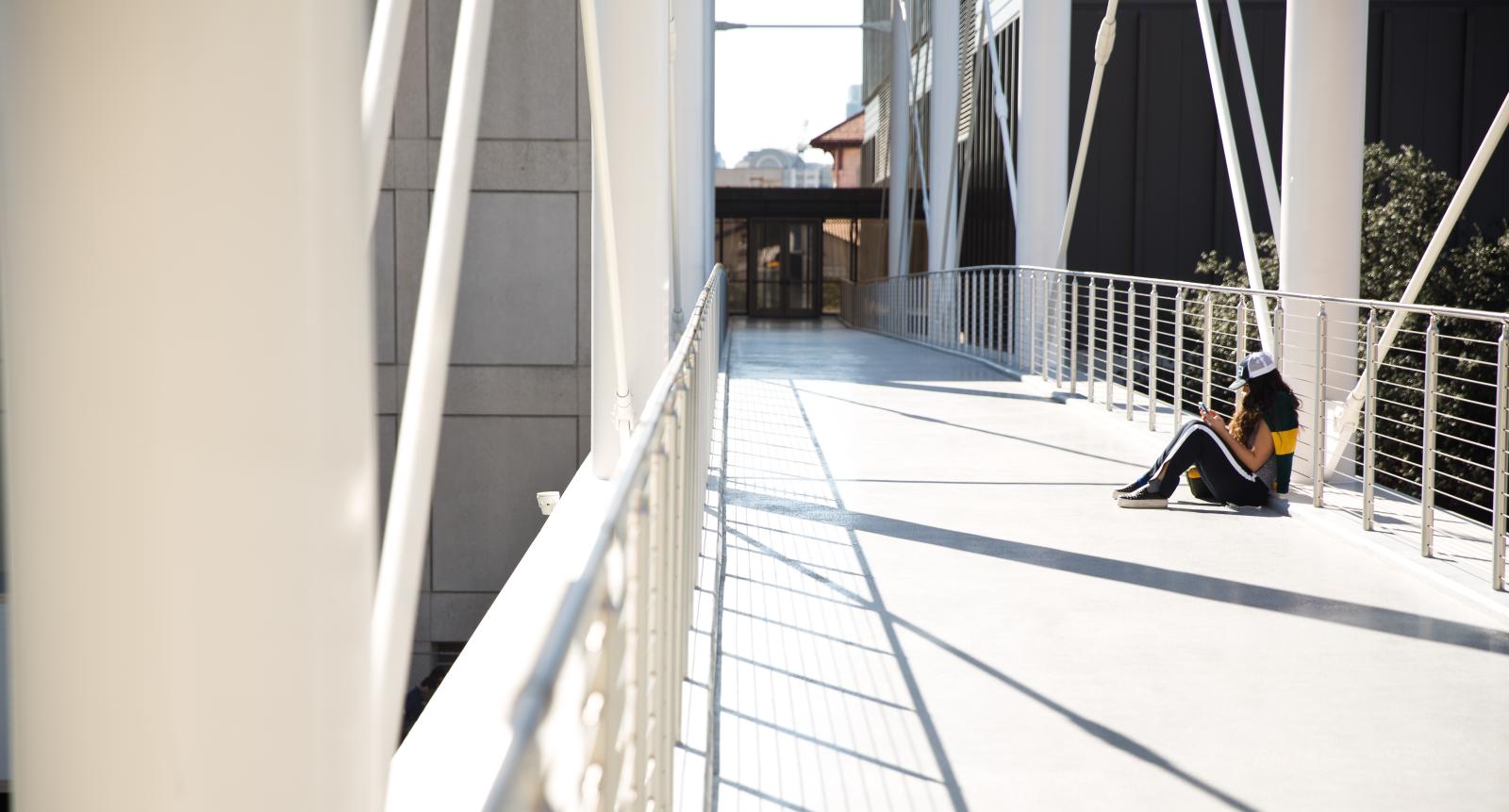Humans First, Students Second

College can be a particularly difficult time for young adults’ mental health, with stress from workload and competition to succeed putting a significant strain on many students. Many aren’t given the language or tools to address these challenges.
“For a lot of people mental health has not been a topic of conversation that they engage in with their families or in certain communities,” said Natalie Tindall, director of the Stan Richards School of Advertising & Public Relations. “College is probably the first time that they're engaging in these conversations and acknowledging something.”
Tindall admitted that she, personally, struggled with mental health issues as a graduate student. She said she talked with a counselor during that time, who helped her figure out best practices to take care of her mental health.
“I was lethargic. I was feeling empty and those types of things, so it was important for me to talk to somebody else,” Tindall said.
Arianna Hosek, a Longhorn Wellness Peer Advisor and psychology and English sophomore, said the competitive nature of college can be unhealthy and have a negative effect on students. She said students should remember to take care of themselves outside of the classroom and maintain a healthy sleep and eating schedule. Hosek said it is also important for students to give themselves grace when dealing with personal issues in college and to not be ashamed of asking for help when needed.
“One thing that students forget is that we're humans first and students second,” she said.
Katy Redd, associate director for Prevention, Development and Media Relations at the Longhorn Wellness Center, said it is important to care for one’s mental health as much as their physical health — and that includes preventative care. Just as one goes to annual physical check-ups, they should also give the same level of care to their mental health, she said. While each person may approach mental health care differently, having a community or a support system is one of the most important things a person can do for their mental health, she said. Others benefit from meditation and physical activity.
“There's times where we do need to talk to a professional about what's going on in our lives and just like going to see a doctor for an annual physical or going to see your eye doctor to see if your prescription has changed,” Redd said. “There's some maintenance stuff that we may see a professional for uncovering things from our past and the habits that we've learned and how that affects our relationships in an everyday way.”
Tindall said that if a student feels they need help improving their mental health, they should do their best to see a professional. It’s important to get out those feelings and have someone to acknowledge and help work through them. Redd said students can call the Counseling and Mental Health Center if they want professional help, and they will help guide the student on the best resource.
CMHC also offers an online student support program, or my SSP, which is an app-based mental health resource to get mental health support virtually. The university also offers group counseling, spanning a variety of identities and topics, such as a mindfulness meditation group and a Latinx Voices group, Redd said.
“The main thing is just giving us a call, and we can kind of help you figure out what our next steps are,” she said.
Tindall said that, because of her experience as a student, she puts a great deal of value on her students’ mental health in the classroom and on being as accommodating as possible.
“For me to tell a student that ‘Oh, that's not that big of a deal, get your assignment done,’ really neglects the fact that you are a whole person with a life outside of the class,” she said.
Tindall said she recommends for professors to educate themselves on mental health topics and ways to approach student mental health, whether it be through articles and podcasts.
“This has taken me years of changing how I've approached things and trying to find new ways of talking and thinking about mental health, holistic perspectives or student development,” she said. “This is a process, and I don't expect anyone to do this immediately.”
